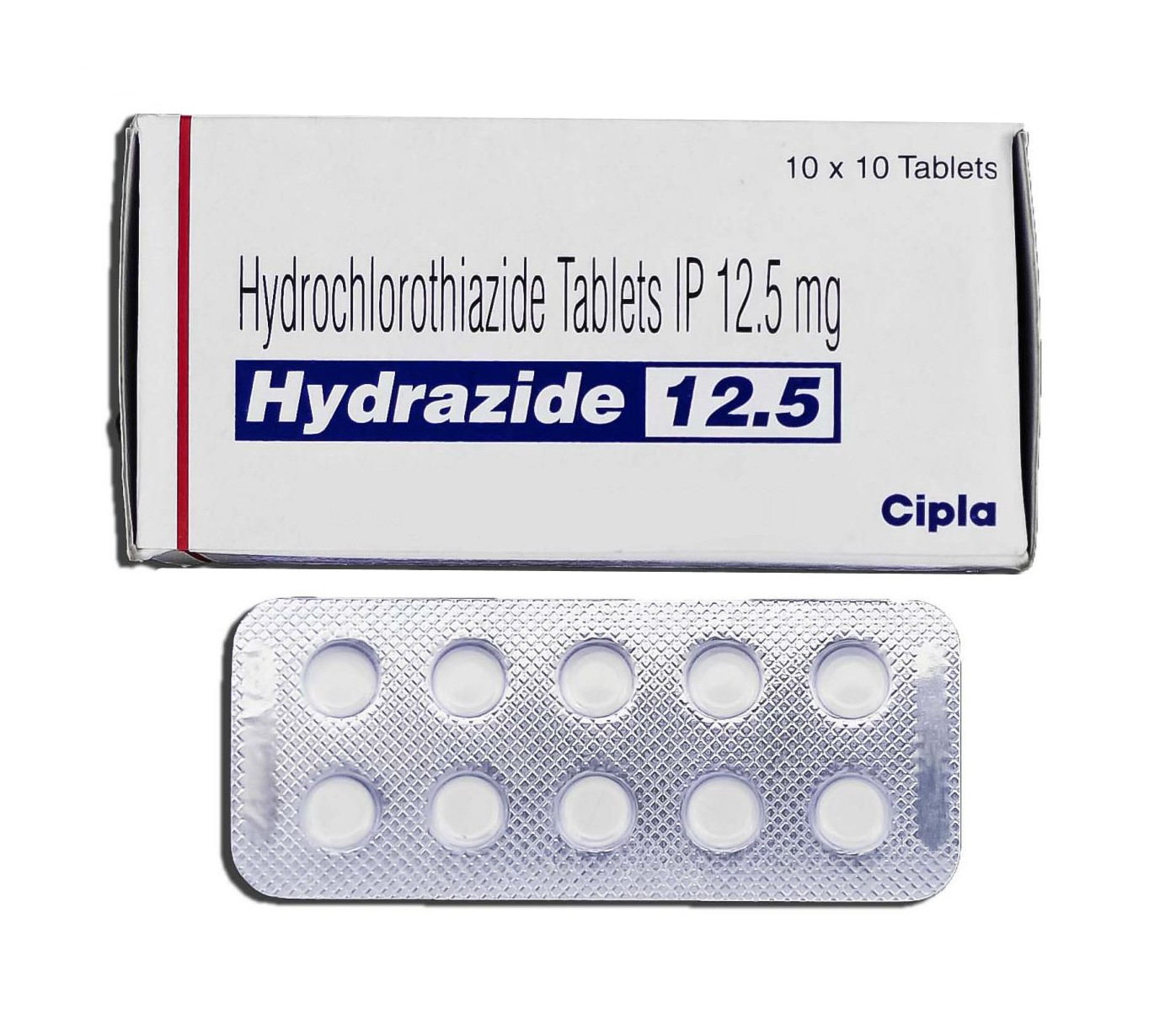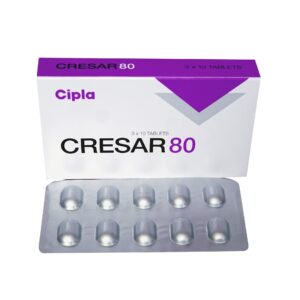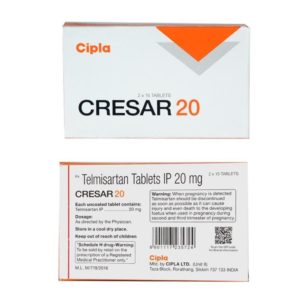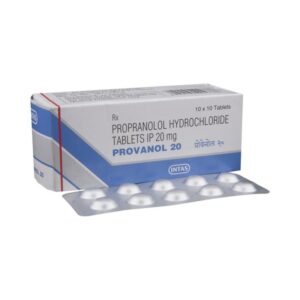Description
Hydrochlorothiazide ( Hydrazide) 12.5 mg tablet is the most widely prescribed thiazide diuretic that is recommended for the treatment of edema and hypertension.
Hydrochlorothiazide prevents the reabsorption of sodium and water from the distal convoluted tubule, allowing for the increased elimination of water in the urine. Hydrochlorothiazide is indicated alone or in combination with other drugs.
Drug = Hydrochlorothiazide
Strength = 12.5mg
Manufacturer = Cipla
Quantity per Sleeve = 100 Tabs
How To Take Hydrochlorothiazide (Hydrazide) 12.5 mg Tablet
Take this medication by mouth as directed by your doctor, usually once daily in the morning with or without food. If you take this drug too close to bedtime, you may need to wake up to urinate. It is best to take this medication at least 4 hours before your bedtime.
The dosage is based on your medical condition and response to treatment.
Dosage of Hydrochlorothiazide (Hydrazide) 12.5 mg Tablet
Hypertension: Initial: 12.5 mg daily, may be increased up to 50 mg daily as necessary, either alone or with other antihypertensive. Dosage is individualised and may be titrated according to patient condition. Maximum: 100 mg daily.
Edema: 25-100 mg daily in 1-2 divided doses. Dose may be administered on alternate days or on 3-5 days each week. Maximum: 200 mg daily.
Missed Dose of Hydrochlorothiazide (Hydrazide) 12.5 mg Tablet
If you often forget to take your medicine, let your doctor and pharmacist know.
Take the missed dose as soon as you remember. If it is almost time for your next dose, skip the missed dose and return to your usual dosing schedule.
Do not double a dose under any circumstances.
Overdose of Hydrochlorothiazide (Hydrazide) 12.5 mg Tablet
Signs of overdose may include the following:
- Hypokalemia
- Hypochloremia
- Hyponatremia
- Extreme diuresis resulting in dehydration
Seek medical help immediately.
Contraindications
People with the following medical conditions should not take Hydrochlorothiazide:
- Hypersensitivity to sulfonamide-derived drugs
- Anuria
- Severe renal impairment
Side Effects
Hydrochlorothiazide may have the following side effects:
- Photosensitivity
- Non-melanoma skin cancer (NMSC) (long-term use)
- Systemic lupus erythematosus
- Hyponatremia
- Hypokalemia
- Hypochloremic alkalosis
- Hypomagnesemia
- Anaphylactoid reactions
- Necrotizing angiitis
- Respiratory distress
- Fever
- Urticaria
- Rash
- Purpura
- Acute transient myopia
- Acute angle-closure glaucoma
- Aplastic anemia
- Agranulocytosis
- Leukopenia
- Hemolytic anemia
- Thrombocytopenia
- Hypotension
- Orthostatic hypotension
- Blurred vision (transient)
- Xanthopsia
- Pancreatitis
- Jaundice
- Diarrhea
- Vomiting
- Sialadenitis
- Cramping
- Constipation
- Gastric irritation
- Nausea
- Anorexia
- Weakness
- Hyperglycemia
- Glycosuria
- Hyperuricemia
- Muscle spasm
- Vertigo
- Paresthesia
- Dizziness
- Headache
- Restlessness
- Renal failure
- Renal dysfunction
- Interstitial nephritis
- Impotence
- Stevens-Johnson syndrome
- Toxic epidermal necrolysis
- Alopecia
Warnings
Inform your doctor and pharmacist if you are taking any of these medicines:
- Dofetilide
- Lithium
Always notify your doctor and pharmacist if you are taking any other medicines, including herbal tonics such as traditional Chinese medicines, supplements and medicines that you buy without a prescription.
This list does not include all medicines that may interact with Hydrochlorothiazide.
How Does It Work?
Sodium reabsorption in distal tubules is prevented by a thiazide diuretic, hydrochlorothiazide, which results in increased excretion of hydrogen ions and water by sodium, potassium, and magnesium.
Uses
Levonorgestrel is used to treat the following conditions:
- Emergency contraception
- Menopausal HRT
Special Precautions and Connected Warnings
Take special precautions if you have the following conditions:
- Patient with electrolyte or fluid disturbances
- Gout
- History or at high risk of skin cancer
- Addison’s disease
- SLE
- Ascites due to cirrhosis
- Diabetes
- Hypercholesterolemia
- Bronchial asthma
- Parathyroid disease
- Mild to moderate renal impairment and hepatic impairment
- Children
- Elderly
- Pregnancy
- Lactation
Storage Conditions
- Store between 20-25°C. Protect from light and moisture.
- Store in a cool, dry place away from the reach of children.
- Do not use Hydrochlorothiazide that is expired or out of expiry date.






